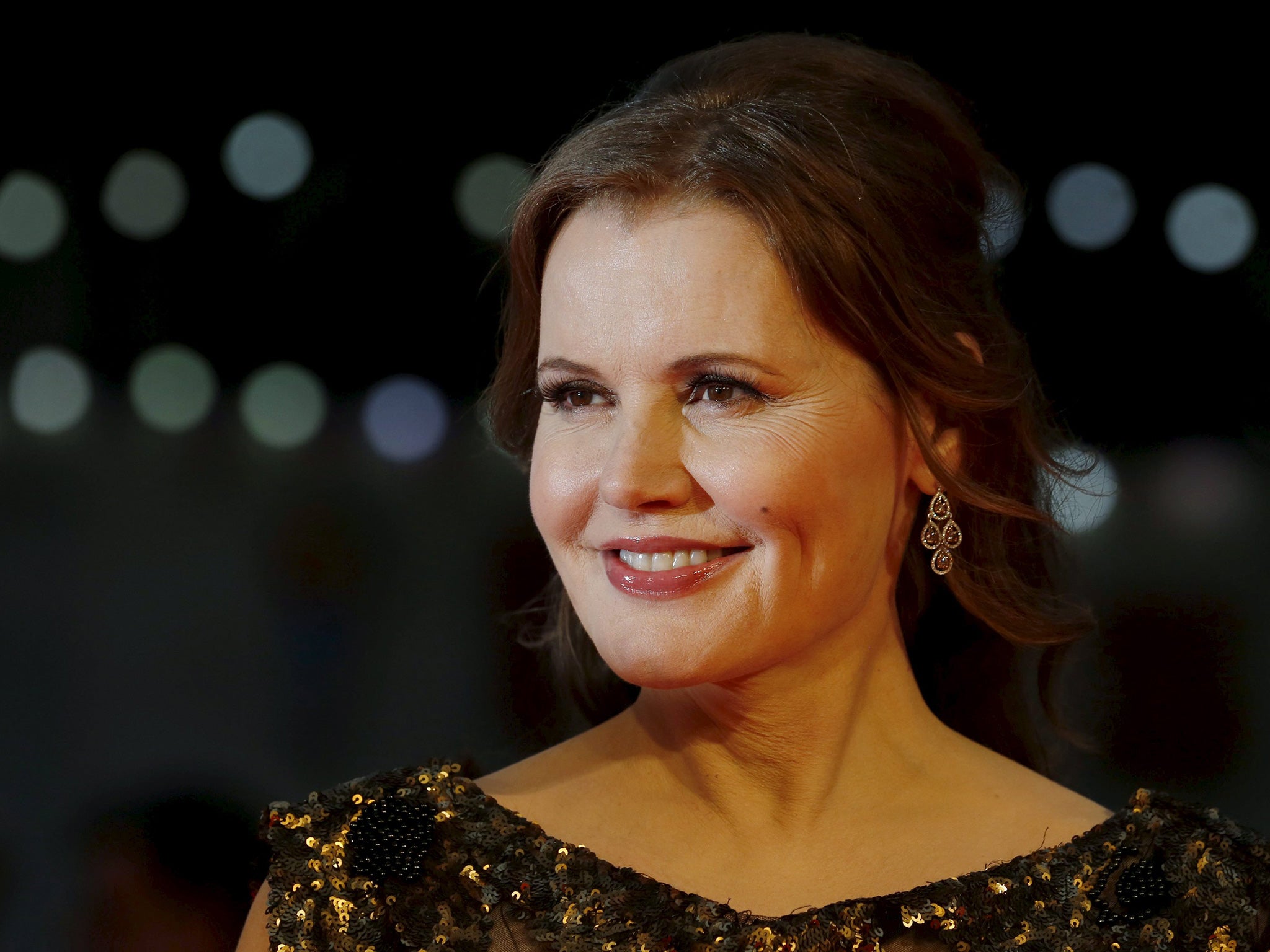Geena Davis: Hollywood gender parity is '700 years away' if female parts rise at the current rate
The actress' institute has researched films and found that for every one female speaking part there are three men, and the stats have been steady since 1946

Your support helps us to tell the story
From reproductive rights to climate change to Big Tech, The Independent is on the ground when the story is developing. Whether it's investigating the financials of Elon Musk's pro-Trump PAC or producing our latest documentary, 'The A Word', which shines a light on the American women fighting for reproductive rights, we know how important it is to parse out the facts from the messaging.
At such a critical moment in US history, we need reporters on the ground. Your donation allows us to keep sending journalists to speak to both sides of the story.
The Independent is trusted by Americans across the entire political spectrum. And unlike many other quality news outlets, we choose not to lock Americans out of our reporting and analysis with paywalls. We believe quality journalism should be available to everyone, paid for by those who can afford it.
Your support makes all the difference.Should the number of female characters in films and television rise at the rate of the past 20 years, reaching parity with their male counterparts onscreen will take 700 years, according to Oscar winning actor and equality campaigner Geena Davis.
While calling for more women at the top, she offered a few “overnight” fixes to the problem of on-screen gender imbalance starting from the ground up. These included calling on filmmakers to change minor characters from men to women, and sorting out the bizarre disparity between men and women in crowd scenes.
The star of Thelma and Louise and A League of Their Own has also urged studios to ignore the “prototype” of the strong female character and put “complex and interesting” women on screen instead.
“We might be getting too hung up on the idea of the strong female character,” she added. “Strong is becoming shorthand for having something to do.”
Davis made an impassioned speech for gender equality on films and television yesterday as part of the BFI London Film Festival. In it she highlighted the surprising statistic that just 17 per cent of the people in crowd scenes are female in both live action and animated films.
“It makes no sense whatsoever. Surely we can fix that,” she told a packed audience at London’s BFI Southbank, before joking: “Perhaps Hollywood writers think women don’t gather.”

Davis, who won an Oscar in 1989 for The Accidental Tourist, said a crowd scene where half the people were women was just one “easy fix”.
“So far having female studio bosses has not changed the gender balance in movies. Though if there’s a female writer, director or producer on the film the percentage of female characters goes up,” she said.
More women decision makers will help “but that’s a big change that will take time. I advocate changes that can happen overnight”.
The actor, who set up the Geena Davis Institute on Gender in Media in 2006, gave the keynote address at the first global symposium on gender in media in London yesterday.
Her institute has researched films and found that for every one female speaking part there are three men, and the stats have been steady since 1946.
She said that in many occupations women “stalled out” at 17 per cent, pointing to research from the University of Denver called Benchmarking Women’s Leadership. It found that women made up just 17 per cent of law partners, military officers, cardiac surgeons, senior engineers and Fortune 500 board members. “No matter how few women CEOs in real life, there are far fewer on screen in fiction.”
Davis pointed out that the one job female characters often represented on television was a forensic scientist on shows like CSI. In real life, the number of women who want to study for the job has rocketed by 75 per cent, she said. “It’s because they saw it.”
Davis and her institute are particularly keen to reverse the trend of inequality for entertainment aimed at the under 11s. “What message are we sending to little kids at the most vulnerable age if the female characters are one-dimensional, stereotyped, side-lined, hyper sexualised or simply not there at all. We are saying that women and girls are less important than men and boys.”
Studio bosses had no idea about the imbalance, Davis said, and already her work has made an impact with film makers admitting it has affected their casting decisions.
“I don’t think it’s going to take 700 years” to reach parity, she said. “We’re going to be able to take both zeroes of that number and move the needle very soon.”
Join our commenting forum
Join thought-provoking conversations, follow other Independent readers and see their replies
Comments